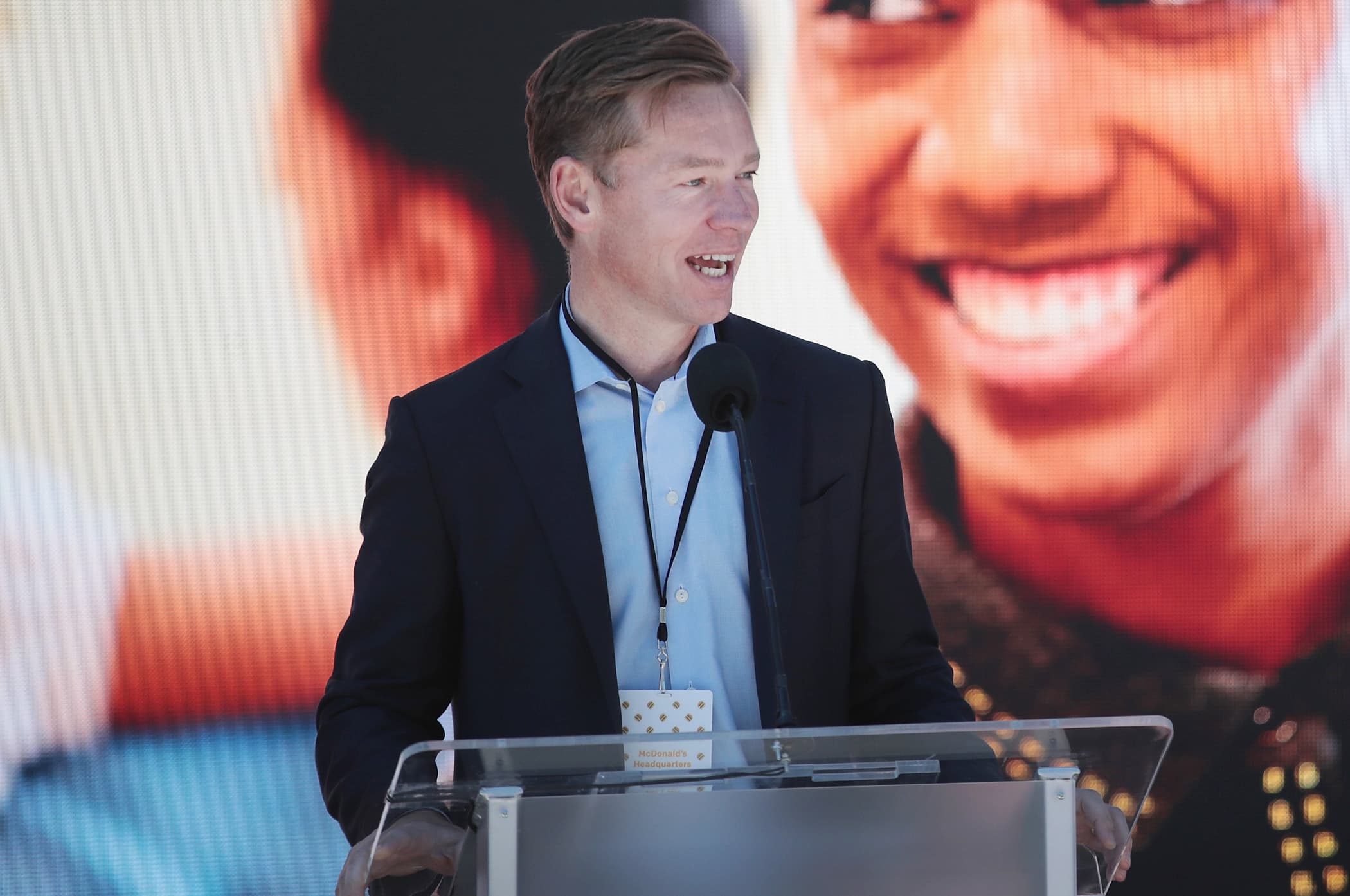McDonald’s CEO says dine-in is here to stay despite online and drive-thru sales growth

Chris Kempczinski, president of McDonald’s USA, speaks at the unveiling of McDonald’s new corporate headquarters during a grand opening ceremony on June 4, 2018 in Chicago, Illinois. The company headquarters is returning to the city, which it left in 1971, from suburban Oak Brook.
Scott Olson | Getty Images
McDonald’s CEO Chris Kempczinski said he expects dining inside the fast-food giant’s restaurants to bounce back.
“I think dine-in is always going to be here,” he said in a CNBC Evolve Conference panel that aired Wednesday. “Eating is such a social experience, and dine-in is a part of that social experience.”
Over the last year, digital ordering and drive-thru sales have surged across the fast-food sectors, helping McDonald’s and its rivals recover from the crisis faster than the broader restaurant industry. McDonald’s, for example, saw its U.S. same-store sales turn positive by the third quarter of 2020. In its latest quarter, the company reported U.S. same-store sales growth of 13.6%.
Other chains, such as Restaurant Brands International’s Burger King and Yum Brands’ Taco Bell, are building new locations with updated designs that feature less seating and focus more on the to-go experience, based on learnings from the pandemic. Still, most plan to keep at least some form of seating for dine-in customers.
For McDonald’s, dine-in customers make up about a quarter of its U.S. sales, Kempczinski told CNBC’s Carl Quintanilla. In 2019, the company recorded $40.41 billion in systemwide sales in the United States, according to Technomic. In Europe, eating inside a McDonald’s restaurant is much more common, particularly because those restaurants are less likely to have a drive-thru lane.
“I think in the U.S., we may see dine-in take longer to recover,” he said. “But we know and we’re certainly expecting that dine-in is also going to be an important part of the McDonald’s experience.”
Shares of McDonald’s have risen 10% this year, giving it a market value of $183 billion.




